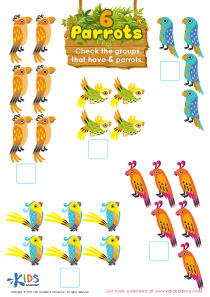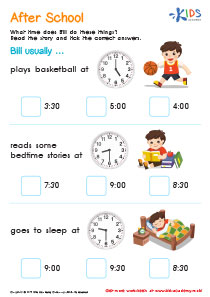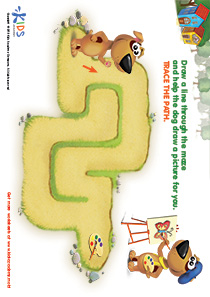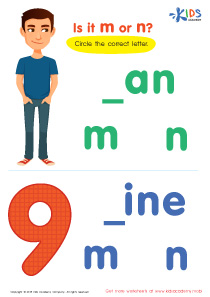Respond to Stories Read Aloud Quizzes for 4-Year-Olds
3 results
3 filtered results
Clear all filters3 filtered results
-
From - To
Introducing our innovative interactive assessment quizzes tailored specifically for 4-Year-Olds, focusing on their ability to Respond to Stories Read Aloud. These engaging quizzes are designed to captivate young minds, encouraging them to listen attentively and express their thoughts on the stories shared with them. Each quiz checks the child's comprehension and provides constructive feedback, reinforcing their understanding and encouraging a deep love for storytelling. Perfect for both learning and fun, these quizzes make story time an interactive adventure, enhancing your child's critical thinking and listening skills. Dive into our Respond to Stories Read Aloud quizzes and watch your 4-year-old blossom into a thoughtful listener and responder.
In an era where the art of storytelling intertwines with technology, interactive quizzes on "Respond to Stories Read Aloud for 4-Year-Olds" have emerged as a pivotal tool in enhancing the learning journey of our youngest scholars. This innovative approach to early childhood education is not merely a trend but a testament to the power of interactive learning, especially when it comes to enriching the minds of 4-year-olds. Through carefully designed assessment quizzes, children are invited into a world of stories, where they not only listen but actively engage, analyze, and respond, laying a strong foundation for their educational journey ahead.
Listening to stories read aloud has always been a magical experience for children. It transports them to diverse worlds, ignites their imaginations, and, most importantly, nurtures their love for reading. However, the addition of interactive quizzes to this experience amplifies its benefits exponentially. These quizzes are crafted with the developmental milestones of 4-year-olds in mind, focusing on enhancing their listening comprehension, vocabulary, critical thinking skills, and emotional intelligence.
One of the key advantages of "Respond to Stories Read Aloud for 4-Year-Olds" is its ability to transform passive listening into an active learning process. As children listen to stories, they are prompted with questions that encourage them to reflect on the plot, characters, and morals of the story. This not only helps in improving their attention span and listening skills but also stimulates their cognitive development by making them think critically about what they've heard. Moreover, by responding to these questions, children practice articulating their thoughts and opinions, thus enhancing their language and communication skills.
Furthermore, these interactive quizzes are designed to be inclusive and accessible, catering to the diverse learning paces and styles of 4-year-olds. With engaging visual aids and auditory prompts, children with different preferences and needs are able to participate and benefit equally. This inclusivity fosters a positive learning environment, where every child feels valued and capable of contributing.
The social-emotional benefits of "Respond to Stories Read Aloud for 4-Year-Olds" are also noteworthy. As children discuss characters' actions and feelings, they develop empathy and a deeper understanding of emotions. These discussions can also spark meaningful conversations between children and educators or parents, strengthening their social bonds and providing valuable insights into the children's emotional development.
Moreover, the interactive nature of these quizzes introduces children to the concept of feedback and self-assessment from an early age. By receiving immediate feedback on their responses, children learn to understand their strengths and areas for improvement, fostering a growth mindset that is critical for lifelong learning.
In conclusion, "Respond to Stories Read Aloud for 4-Year-Olds" with its interactive quizzes, is more than just an educational tool; it's a gateway to a world of learning that is engaging, inclusive, and deeply enriching. It prepares children not only academically but also socially and emotionally for the challenges ahead, making it an invaluable component of early childhood education. As we continue to navigate the evolving landscape of learning, the integration of such interactive and responsive tools will undoubtedly play a crucial role in shaping the future of education for our youngest learners.











